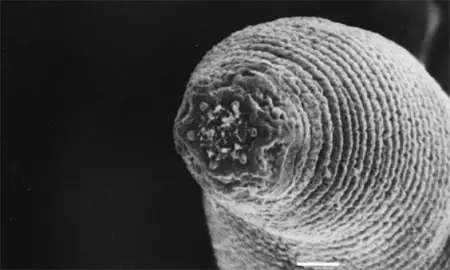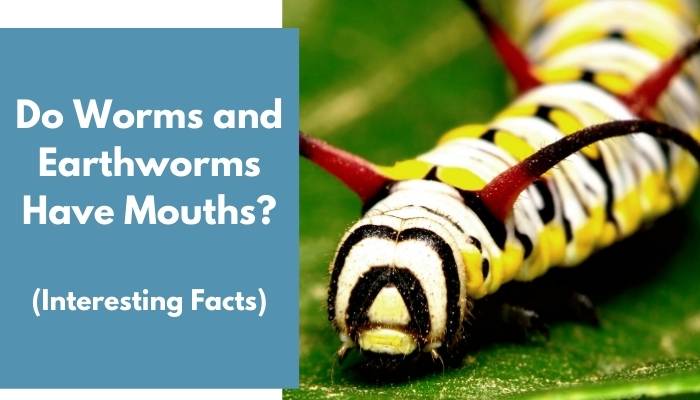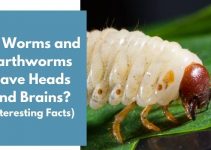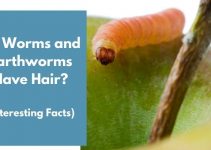Many of us often see worms as not one of the attractive animals. However, their lives and how they live are quite fascinating for a curious mind. Thus, many people continue to ask questions about these animals. For instance, With their bodies, you may often wonder how they eat. In fact, you may even wonder how they take in food to eat. Thus, it begs the question:
Do worms and earthworms have mouths? Yes, worms and earthworms do have mouths, and it’s in the tip of their bodies opposite to their anus. Their mouths don’t have teeth but are muscular and strong. Thus, it’s enough for them to take in all kinds of nutrients and organisms they can find in the soil.
A worm’s mouth is one of the fascinating parts of its body. Thus, it’s a great experience to understand this kind of stuff. If you’re curious about how their mouth works and how they take food in, then read on.
Let’s get into it!
Contents
Do worms have a mouth?
The short answer is yes. Worms do have a mouth. Since worms are tiny, it can be quite challenging to notice that they have a mouth, but they do.
Worms use their mouth to take in food coming from the things they find in the soil. One thing to note is that they may have mouths, but they don’t have teeth.
Still, they compensate such a lack with an extra-strong and muscular mouth. While worms don’t have teeth to chew the food, they have muscular mouths to break down organisms.
Further, worms’ diet doesn’t necessarily ask for sturdy teeth. The food options they get are decaying vegetation, soil, dead animals, and even living microorganisms. Thus, they don’t need teeth to eat, only mouths.
Related Articles About Worms Anatomy:
- Do Worms and Earthworms Have Bones?
- Do Worms and Earthworms Have Legs?
- Do Worms and Earthworms Have Ears?
- Do Worms And Earthworms Have Lungs?
What do worms use their mouths for?
Worms use their mouth to eat food. Through their mouths, worms swallow pieces of dirt and decaying leaves.
The food would pass through their pharynx, going down through the esophagus and then down into the crop. The crop is the part where worms store the food temporarily.
The stomach of worms is quite muscular. Thus, people usually call it a gizzard. Its strength is enough to eat the soil and the nutrients in it.
The soil is where worms can move around freely. It gives them the moisture they need for their skin. It also renders protection against the sunlight. Most importantly, the soil provides all the nutrients and food they need.
Since worms only live in the ground, it’s also the only place where they can look for food. In the soil, all kinds of microorganisms and nutrients are present.
For this reason, worms would never run out of nutrients in it. For instance, soil comes with things such as decaying roots and leaves. It comes with living organisms such as nematodes, protozoans, rotifers, bacteria, and fungi.
Sometimes, the ground also has buried animals. Its decomposing body also provides an ample amount of nutrients to worms.
The great thing about this is that as worms eat dirt, they also poop rich soil, which is excellent for growing plants. Thus, many farmers want many worms in their ground.
What does a worm mouth look like?
At a glance, it would be challenging to see what a worm’s mouth looks like. However, if you take a close look, it’s a tiny hole enough to let in small particles of soil.
It can also expand but not that much. One thing to note is that the mouth is quite muscular. It’s the thing that makes worms break down different organisms they can find in the dirt.
Another thing to note is that their mouths don’t have teeth. While many illustrations depict a worm’s mouth with lots of teeth, typical worms like earthworms don’t have such.
Instead, they have a muscular mouth that breaks down the food. You can take a look at this picture for reference.

Do worms have teeth?
No, worms don’t have teeth. Contrary to many worms images, they don’t have teeth, but it doesn’t make them lack the capacity to breakdown food.
Although worms don’t have teeth, they can still eat food found in the dirt. They do this through a muscular mouth.
In the first place, worms don’t need teeth. They eat decaying vegetation, soil, dead animals, and even living microorganisms. Thus, they don’t need teeth to eat, only mouths.
Read also other articles about worms’ eyes, heads and brains, hair, hearts, and blood.
Summary
Worms are exciting animals, and they can surprise us with fascinating facts. One of these is how their mouth works, and yes, they do have mouths.
With their bodies, it can be a real wonder how they eat, and if they even have mouths, to begin with, but they do.
The mouth of worms is strong and muscular. So, it’s enough for them to break down food. It also compensates for their lack of teeth.
While they do eat things in the soil, they return excellent benefits. They produce rich soil that is perfect for plants’ growth. Thus, many farmers and gardeners like to have many worms in their ground. More worms mean richer soil.
Aside from the fascinating things about them, worms also do a lot of things for us. Thus, it would be best to leave worms where they are and not take them away from the soil.
Resources
Image credits – Canva, pinimg.com



